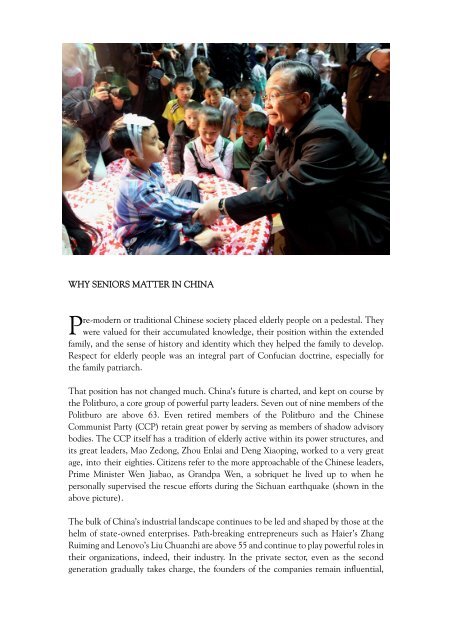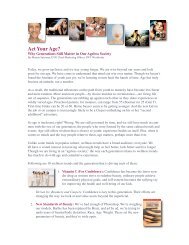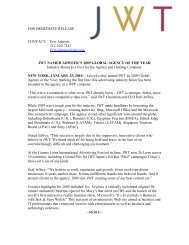Embracing Change, Realizing Dreams - WPP.com
Embracing Change, Realizing Dreams - WPP.com
Embracing Change, Realizing Dreams - WPP.com
You also want an ePaper? Increase the reach of your titles
YUMPU automatically turns print PDFs into web optimized ePapers that Google loves.
WHY SENIORS MATTER IN CHINAPre-modern or traditional Chinese society placed elderly people on a pedestal. Theywere valued for their accumulated knowledge, their position within the extendedfamily, and the sense of history and identity which they helped the family to develop.Respect for elderly people was an integral part of Confucian doctrine, especially forthe family patriarch.That position has not changed much. China’s future is charted, and kept on course bythe Politburo, a core group of powerful party leaders. Seven out of nine members of thePolitburo are above 63. Even retired members of the Politburo and the ChineseCommunist Party (CCP) retain great power by serving as members of shadow advisorybodies. The CCP itself has a tradition of elderly active within its power structures, andits great leaders, Mao Zedong, Zhou Enlai and Deng Xiaoping, worked to a very greatage, into their eighties. Citizens refer to the more approachable of the Chinese leaders,Prime Minister Wen Jiabao, as Grandpa Wen, a sobriquet he lived up to when hepersonally supervised the rescue efforts during the Sichuan earthquake (shown in theabove picture).The bulk of China’s industrial landscape continues to be led and shaped by those at thehelm of state-owned enterprises. Path-breaking entrepreneurs such as Haier’s ZhangRuiming and Lenovo’s Liu Chuanzhi are above 55 and continue to play powerful roles intheir organizations, indeed, their industry. In the private sector, even as the secondgeneration gradually takes charge, the founders of the <strong>com</strong>panies remain influential,
















